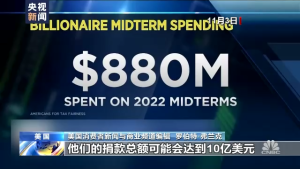U.S. chipmaker Nvidia Corp. has developed a new chip for use by Chinese customers. The chip will not violate U.S. government regulations on chip export restrictions, offering new possibilities for Nvidia to retain the Chinese market and Chinese customers.
According to international media reports, the new chip, codenamed A800, can replace the company’s A100 chip performance. Recent U.S. export control regulations say that the data transfer rate of chips exported to China must not exceed 600 gigabytes per second, while the new chip’s rate is just under 600 gigabytes per second, which is lower than the 800 gigabytes per second rate of the A100.

The A800 chip is widely used in servers and artificial intelligence applications of Chinese tech giants such as Alibaba and Tencent. It has the same computing power as the A100, only the interconnect band is slightly narrower.
Wayne Lam, an analyst at market research firm CCS Insight, told Reuters, “China is an important market for Nvidia, and reconfiguring the product to circumvent trade restrictions makes important business sense.”
Reuters said NVIDIA is the first U.S. semiconductor company to develop products for the Chinese market that comply with U.S. trade control regulations. Industry sources expect that more U.S. companies will follow Nvidia in developing products that meet the needs of the Chinese market and do not violate the U.S. ban.
NVIDIA has said that the company’s exports to China of about $400 million in the third quarter of this year may be affected by the U.S. government’s export restrictions on high-end chips to China, and that the new chips will help mitigate losses.
China is an important market for NVIDIA, and last year, the company’s China business revenue amounted to more than $ 7.1 billion, accounting for 26.4 percent of the company’s revenue.
NVIDIA said the chip went into production in the third quarter of this year. The Wall Street Journal said Nvidia is expected to start shipping in recent weeks. U.S. computer company Dell may also be a buyer of this chip. But Dell has not yet responded to the Wall Street Journal’s inquiries.
In October this year the Biden administration introduced a ban on the export of advanced chip equipment, preventing U.S. companies from selling high-end chips to China. Nvidia’s A100 was included in the list of banned exports. This move sparked market concerns about a significant drop in exports to China from U.S. exporters.
After this ban was issued, the semiconductor sector in the U.S. market collectively fell sharply. Securities analysts are reassessing the Chinese operations of these companies.
Translated with www.DeepL.com/Translator (free version)

